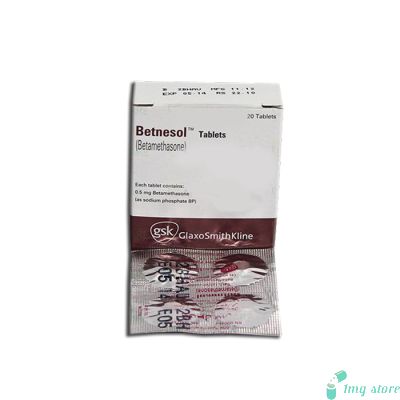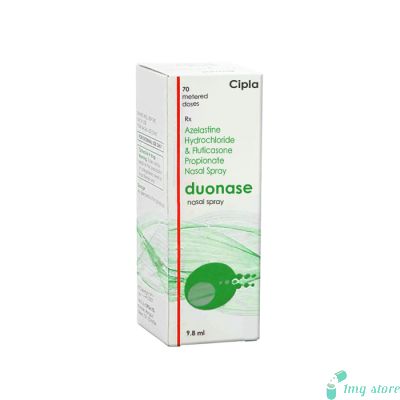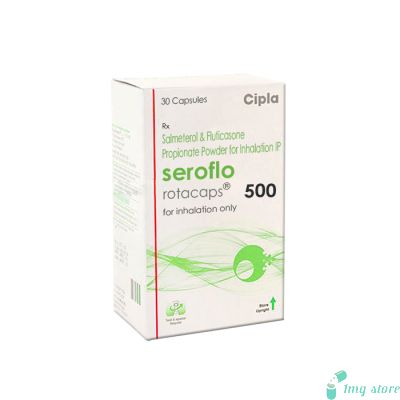Ciplactin Tablet (Cyproheptadine)
Cyproheptadine tablet, available under various brand names such as Periactin and Ciplactin, is a medication containing cyproheptadine hydrochloride. It is primarily used for the treatment of allergies but has gained popularity as an appetite stimulant and weight gain tablet.
Information About Ciplactin Tablet (Cyproheptadine)
Cyproheptadine tablet, commonly known by brand names such as Periactin and Ciplactin, is a medication containing the active ingredient cyproheptadine hydrochloride (HCl). Cyproheptadine is an antihistamine with additional anticholinergic and antiserotonergic properties. It is primarily used to treat Allergies, but it also has off-label uses as an appetite stimulant and a weight gain tablet. This article will provide an overview of cyproheptadine tablets, including dosage information, uses, and their role in stimulating appetite and promoting weight gain.
Dosage Information:
The recommended dosage of Cyproheptadine HCl tablet may vary depending on the condition being treated. It is essential to follow the prescribed dosage instructions provided by a healthcare professional or the instructions on the product label. The dosage for adults and children usually ranges from 4 to 20 milligrams (mg) per day, divided into multiple doses. However, the specific dosage and frequency should be determined by a healthcare provider based on individual needs.
Cyproheptadine Appetite Stimulant Tablet:
Cyproheptadine tablet is widely recognized as an effective appetite stimulant. It acts by antagonizing serotonin receptors in the hypothalamus, a region of the brain involved in appetite regulation. By blocking these receptors, cyproheptadine increases the release of certain neuropeptides that promote appetite and food intake. This mechanism of action can be particularly beneficial for individuals who struggle with poor appetite, decreased caloric intake, or difficulty gaining weight.
Ciplactin Weight Gain Tablet:
Ciplactin is one of the brand names for cyproheptadine tablets. Marketed as a weight gain tablet, Ciplactin contains cyproheptadine hydrochloride and is commonly prescribed to individuals seeking to increase their body weight. The medication helps to stimulate appetite, leading to increased food consumption and calorie intake. By promoting a positive energy balance, Ciplactin can support healthy weight gain and may be used in cases where weight loss or low body weight is a concern.
Cyproheptadine tablet, available under various brand names such as Periactin and Ciplactin, is a medication containing cyproheptadine hydrochloride. It is primarily used for the treatment of allergies but has gained popularity as an appetite stimulant and weight gain tablet. By blocking certain receptors in the brain, cyproheptadine can enhance appetite and promote weight gain, making it beneficial for individuals with decreased appetite or difficulty gaining weight. However, it is essential to follow the prescribed dosage and consult a healthcare provider to ensure the safe and appropriate use of cyproheptadine tablets.
Some Of The Safety Precautionary Measure To Be Taken While Using Ciplactin Tablet (Cyproheptadine)
Allergies: Before taking a cyproheptadine tablet/Periactin, it is important to inform your healthcare provider about any known allergies to cyproheptadine or any other antihistamines. Allergic reactions to medications can range from mild to severe and may include symptoms such as rash, itching, swelling, dizziness, or difficulty breathing. If you experience any signs of an allergic reaction, seek immediate medical attention.
Medical Conditions: It is crucial to disclose your complete medical history to your healthcare provider before starting cyproheptadine treatment. Certain medical conditions may require special precautions or adjustments in the dosage of cyproheptadine. These conditions may include glaucoma, asthma, urinary retention, prostate enlargement, stomach ulcers, epilepsy, liver disease, kidney disease, cardiovascular conditions, or thyroid disorders. Cyproheptadine may worsen symptoms or interact with medications used to treat these conditions.
Pregnancy and Breastfeeding: Pregnant or breastfeeding individuals should exercise caution when considering the use of cyproheptadine. The safety of cyproheptadine during pregnancy has not been adequately studied, and it is generally recommended to avoid its use unless the benefits outweigh the potential risks. Similarly, it is not recommended to use cyproheptadine while breastfeeding, as it may pass into breast milk and potentially affect the infant.
Children and Elderly: Special precautions should be taken when administering cyproheptadine to children or elderly individuals. The dosage and safety profile may differ based on age, and healthcare providers should carefully evaluate the risks and benefits before prescribing cyproheptadine in these populations.
Alcohol and Sedatives: Cyproheptadine may cause drowsiness or dizziness. Therefore, it is important to avoid alcohol consumption and the use of other sedative medications while taking cyproheptadine, as these substances can potentiate these effects and impair your ability to perform tasks that require alertness, such as driving.
Some Potential Utilization Of Ciplactin Tablet (Cyproheptadine)
Allergy Relief: Cyproheptadine is primarily indicated for the treatment of allergies. It works by blocking the effects of histamine, a substance produced by the body during an allergic reaction. This helps to alleviate symptoms such as sneezing, itching, watery eyes, and runny nose. It may be used to manage various allergic conditions, including hay fever, allergic rhinitis, and allergic skin reactions.
Appetite Stimulation: Cyproheptadine/Periactin has gained popularity as an appetite stimulant, especially in cases where individuals experience decreased appetite or weight loss. It acts by blocking certain receptors in the brain, which can enhance appetite and promote weight gain.
Weight Gain: Due to its appetite-stimulating effects, cyproheptadine is sometimes prescribed as a weight gain tablet. It may be used to help individuals who have difficulty gaining weight, such as those with certain medical conditions, eating disorders, or those recovering from illness or surgery. The increased caloric intake resulting from improved appetite can support healthy weight gain.
Other Off-Label Uses: In addition to its primary indications, cyproheptadine may be prescribed off-label for other conditions. It has been used to manage migraines, serotonin syndrome, certain gastrointestinal disorders, and as an adjunctive treatment for certain psychiatric conditions. However, it is important to note that the off-label uses should be discussed with a healthcare provider, as the safety and efficacy may vary.
It is important to be aware of possible adverse reactions of Cyproheptadine tablets:
Like any medication, cyproheptadine tablets can potentially cause side effects
Drowsiness: Cyproheptadine can cause drowsiness or sedation, particularly when starting the medication or when the dosage is increased. It is important to avoid activities that require alertness, such as driving or operating machinery, until you know how the medication affects you. If drowsiness persists or worsens, it is advisable to consult your healthcare provider.
Dry Mouth: Dry mouth, or xerostomia, is another common side effect of cyproheptadine. It may cause a feeling of thirst, difficulty in swallowing, altered taste perception, or an increase in dental issues. Staying hydrated and practicing good oral hygiene can help manage this side effect. Chewing sugar-free gum or using saliva substitutes may provide relief.
Blurred Vision: Some individuals may experience temporary blurred vision or difficulty focusing while taking cyproheptadine. It is advisable to avoid activities that require clear vision until your eyesight returns to normal. If the blurred vision persists or worsens, consult your healthcare provider for further evaluation.
Urinary Retention: Cyproheptadine can affect the normal functioning of the urinary system and may lead to urinary retention, making it difficult to empty the bladder completely. If you experience difficulty urinating, decreased urine output, or discomfort, it is important to seek medical attention promptly.
Gastrointestinal Disturbances: Cyproheptadine may cause gastrointestinal side effects such as nausea, vomiting, constipation, or diarrhea. Maintaining a balanced diet, drinking plenty of fluids, and incorporating fiber-rich foods can help alleviate these symptoms. If gastrointestinal disturbances persist or become severe, consult your healthcare provider for further guidance.
Increased Appetite and Weight Gain: While increased appetite and weight gain are desired effects in certain situations, it is important to monitor any excessive or rapid weight gain. Unintentional and significant weight gain should be reported to your healthcare provider, as it may indicate an underlying medical issue.
Allergic Reactions: In rare cases, cyproheptadine can trigger allergic reactions. Symptoms of an allergic reaction may include rash, itching, swelling (particularly of the face, tongue, or throat), severe dizziness, or difficulty breathing. If you experience any signs of an allergic reaction, seek immediate medical attention.
Other Side Effects: Cyproheptadine may also cause less common side effects, such as headache, dizziness, nervousness, restlessness, fatigue, or muscle weakness. If you experience any unexpected or persistent side effects while taking cyproheptadine, it is important to consult your healthcare provider for evaluation and guidance.
FAQs about Cyproheptadine Tablet:
Can cyproheptadine tablets be used to treat migraines?
Answer: Yes, the cyproheptadine tablet is sometimes used off-label for the treatment of migraines. Its antiserotonergic properties may help in reducing the frequency and intensity of migraines. However, it is important to consult with a healthcare provider to determine the appropriate dosage and evaluate the potential benefits and risks.
Can cyproheptadine cause significant weight gain?
Answer: While cyproheptadine/Periactin is known to stimulate appetite and promote weight gain, the extent of weight gain can vary among individuals. Factors such as individual metabolism, dietary intake, and underlying medical conditions can influence the degree of weight gain. It is important to follow the prescribed dosage and monitor weight changes under the guidance of a healthcare provider.
Can I abruptly stop taking cyproheptadine?
Answer: It is generally not recommended to abruptly stop taking cyproheptadine without consulting your healthcare provider. Sudden discontinuation may result in withdrawal symptoms or a recurrence of the condition being treated. If you wish to discontinue cyproheptadine, your healthcare provider will guide you through a gradual tapering process to minimize potential risks.
Can cyproheptadine tablets interact with herbal supplements?
Answer: Yes, cyproheptadine can potentially interact with herbal supplements. It is important to inform your healthcare provider about any herbal supplements you are taking, as they may have effects on the central nervous system or interact with cyproheptadine, increasing the risk of side effects or reducing its efficacy.
Is cyproheptadine tablet safe for elderly individuals?
Answer: Cyproheptadine can be used in elderly individuals, but caution should be exercised due to the increased risk of side effects, such as sedation and cognitive impairment. Healthcare providers may prescribe lower initial dosages and closely monitor elderly patients for any adverse effects. It is important to discuss individual circumstances and medical history with a healthcare provider to ensure safe and appropriate use of cyproheptadine in elderly individuals.
Potential Drug Connection with Ciplactin Tablet (Cyproheptadine)
Central Nervous System (CNS) Depressants: Cyproheptadine/Periactin can enhance the sedative effects of CNS depressants such as alcohol, benzodiazepines, barbiturates, opioids, and sedating antihistamines. Concurrent use of cyproheptadine with these substances can increase the risk of excessive sedation, drowsiness, and impaired coordination. It is important to inform your healthcare provider about all medications you are currently taking to avoid potential drug interactions.
Monoamine Oxidase Inhibitors (MAOIs): Cyproheptadine should not be used within 14 days of discontinuing MAOIs or in individuals currently receiving MAOI therapy. The combination of cyproheptadine and MAOIs can lead to a potentially life-threatening condition called serotonin syndrome, characterized by symptoms such as agitation, hallucinations, rapid heartbeat, fever, muscle stiffness, tremor, and coordination problems.
Anticholinergic Medications: Cyproheptadine has anticholinergic properties, and concurrent use with other anticholinergic medications may increase the risk of side effects such as dry mouth, constipation, urinary retention, blurred vision, and cognitive impairment. It is important to discuss all your medications, including over-the-counter drugs and herbal supplements, with your healthcare provider to avoid potential interactions.
| Manufacturer | : | Cipla Pharma, India |
| Equivalent Brand | : | Periactin |
| Generic Search | : | Cyproheptadine HCL |
















